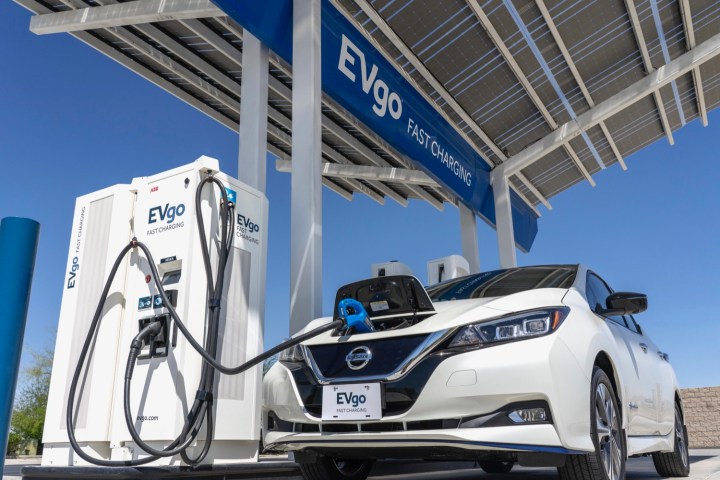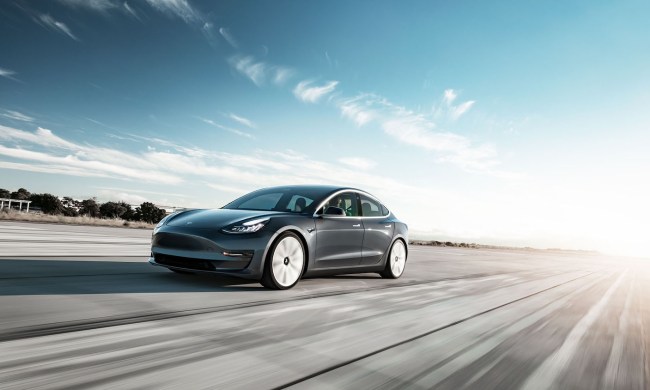
Nissan and EVgo are expanding their network of DC fast-charging stations for electric cars. The two companies plan to add 200 new charging stations across the United States, according to a joint press release. Adding charging stations will make life more convenient for owners of electric cars — such as Nissan’s Leaf — which could encourage more people to buy them.
DC fast-charging stations are aptly named. While a typical 240-volt Level 2 AC charging station takes 11.5 hours to recharge a 2019 Leaf Plus electric car’s 62-kilowatt-hour battery pack, a DC fast-charging station can do an 80-percent recharge in 45 minutes, according to Nissan. Charging speed slows down after that to avoid damaging the battery pack. The charging stations will be built “all over the U.S.,” Jonathan Levy, EVgo vice president of strategic initiatives, told Digital Trends.
The 200 new charging stations planned by Nissan and EVgo can charge at a rate of 100 kilowatts, making them among the most powerful currently available. However, Electrify America, the entity spending Volkswagen diesel-emission penalty money on zero-emission vehicle infrastructure, has some stations that can do a 150kW charge. But you need a car equipped to charge at that rate. The upcoming Porsche Taycan is expected to charge at up to 350 kW.
There are currently three different DC fast-charging standards, and the new stations will be compatible with two of them. The Nissan Leaf uses the CHAdeMO standard, but most European and U.S. automakers prefer the Combined Charging Standard (CCS). The new stations will include both CHAdeMO and CCS plugs. Meanwhile, Tesla electric cars use the company’s own charging standard, compatible with Tesla’s network of Supercharger stations.
Nissan was one of the first automakers to sell a modern, mass-market electric car, and it’s been in the fast-charging game for a while. The Japanese automaker claims to have spent more than $60 million on charging infrastructure since the launch of the first-generation Leaf in December 2010, installing more than 2,000 DC fast-charging plugs. EVgo has been working with Nissan for six years, and claims that 100 million Americans live within a 15-minute drive of one of its fast-charging stations.
Automaker investments in charging infrastructure are common, but not universal. Tesla built its Supercharger network from scratch to support its electric cars, while Volkswagen Group brands such as Audi and Porsche will be able to rely on the Electrify America network (both Nissan and Electrify America have opened their charging networks to electric cars from other companies). BMW has also funded some charging stations in high-traffic corridors and national parks. General Motors has shied away from funding charging stations for its Chevrolet Bolt EV and a promised fleet of new electric cars, preferring to rely on other entities to develop the infrastructure.


